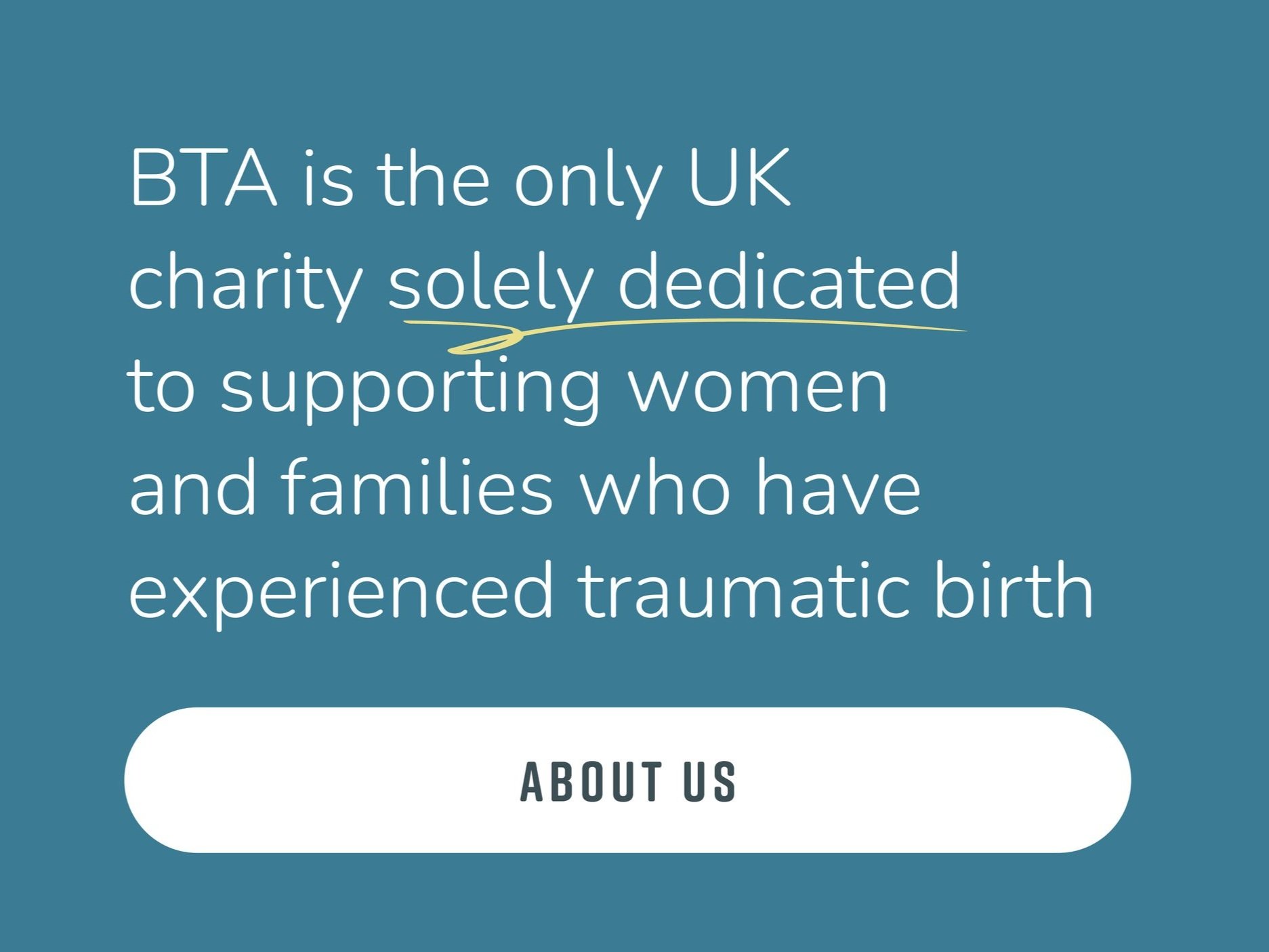Anna Williamson presents BTA’s new training videos for health professionals
The Birth Trauma Association, a charity that supports parents experiencing psychological distress after traumatic birth, has launched three powerful new videos to train midwives, obstetricians, health visitors, GPs and other health professionals about birth trauma.
The three videos are:
What is birth trauma?
Preventing birth-trauma
Trauma-informed care
Each 30-minute video is presented by TV celebrity Anna Williamson, who presents E4’s Celebs Go Dating. Anna, who generously gave her services for free, had a traumatic experience when she gave birth to her first child, and the Birth Trauma Association is a charity close to her heart. She says: “I was delighted to be able to help the BTA by presenting these videos. Approximately 30,000 women a year experience birth trauma, but many don’t receive the support they need. I hope these videos will help health professionals gain a better understanding of what causes birth trauma, how the condition can impact parents and what they can do as professionals to help prevent it.”
The first video, What is birth trauma?, explains what birth trauma is, how it affects both women and their partners, and how it can be successfully treated. The second, Preventing birth trauma, looks at what maternity units and health professionals can do to reduce the likelihood of women developing birth trauma. The final video, Trauma-informed care, explains how health professionals can support women who have had a previous traumatic experience, and are at risk of being re-traumatised by birth. The videos can be hired singly or as part of a package, trailers can be viewed alongside BTA’s other training materials here.
Moving testimony
The videos include moving testimony from mothers – and one father – about their own experience of traumatic birth and how it affected them. They also offer expert commentary and advice from midwives, academics and mental health professionals.
Although the parents’ accounts of the impact of traumatic birth pack a powerful emotional punch, there are also elements of their stories that are uplifting. Their experiences show that it is possible both to treat birth trauma successfully and that health professionals have an important role to play in preventing it.
“We believe these videos will do an excellent job of explaining both how birth trauma affects parents and to prevent it.”
Kim Thomas, CEO of the Birth Trauma Association, said: “We reach more and more parents every year – we now have 15,000 members in our Facebook group. When they share their stories of traumatic birth, they often talk about things that health professionals could have done differently either to prevent or reduce the trauma or to support them afterwards. We thought it would be very helpful for health professionals to hear from those parents directly, as well as hearing the views of experts about the causes and impact of birth trauma. We don’t always have the capacity to fulfil all the requests we receive for face-to-face training, but we believe these videos will do an excellent job of explaining both how birth trauma affects parents and to prevent it.”
Notes for editors:
The Birth Trauma Association is a national charity that supports parents who experience symptoms of psychological distress, including PTSD, after birth. For more information or media interviews, please contact Kim Thomas at kim@birthtraumaassociation.org.uk or 07779 275032.







